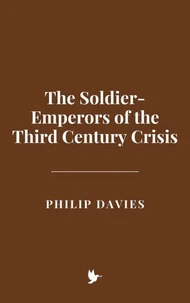This book offers an in-depth exploration of the Roman family as the foundational unit of Roman society, tracing its evolution from the early Republic through the height of the Empire. The book examines the intricate web of relationships within the familia, focusing on the roles and authority of the paterfamilias, the influence of the matrona, and the status of children, slaves, and freedmen. It explores how Roman law shaped family life, with a particular focus on legal concepts such as patria potestas, inheritance rights, marriage, and the family's relationship to the state.
Drawing on primary sources, including writings by Cicero, Tacitus, and Gaius, as well as Roman legal texts and historical accounts, this book delves into the power dynamics at play within the family, demonstrating how familial structures reinforced broader societal values and state governance. It also looks at the family's role in Roman military service, its contributions to political power, and the ways in which the family unit was key to both the personal and collective identity of Romans.
With a nuanced approach, The Roman Family examines the impact of Roman expansion, the shifting roles of women, and the integration of freedmen and slaves into the family system. It offers insight into how family and citizenship were intertwined, providing readers with a deeper understanding of the cultural, legal, and social mechanisms that drove the Roman Empire. Ultimately, this book illustrates how the Roman family was a central institution, shaping everything from private domestic life to public political power.
This book offers an in-depth exploration of the Roman family as the foundational unit of Roman society, tracing its evolution from the early Republic through the height of the Empire. The book examines the intricate web of relationships within the familia, focusing on the roles and authority of the paterfamilias, the influence of the matrona, and the status of children, slaves, and freedmen. It explores how Roman law shaped family life, with a particular focus on legal concepts such as patria potestas, inheritance rights, marriage, and the family's relationship to the state.
Drawing on primary sources, including writings by Cicero, Tacitus, and Gaius, as well as Roman legal texts and historical accounts, this book delves into the power dynamics at play within the family, demonstrating how familial structures reinforced broader societal values and state governance. It also looks at the family's role in Roman military service, its contributions to political power, and the ways in which the family unit was key to both the personal and collective identity of Romans.
With a nuanced approach, The Roman Family examines the impact of Roman expansion, the shifting roles of women, and the integration of freedmen and slaves into the family system. It offers insight into how family and citizenship were intertwined, providing readers with a deeper understanding of the cultural, legal, and social mechanisms that drove the Roman Empire. Ultimately, this book illustrates how the Roman family was a central institution, shaping everything from private domestic life to public political power.

 , qui est-ce ?
, qui est-ce ?